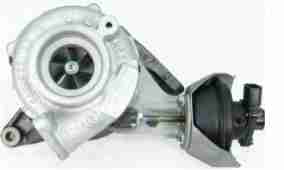Turbo Rebuild: How to Keep Your Turbo in Top Shape
Turbochargers are important parts of modern engines. They help engines produce more power and use fuel more efficiently by forcing extra air into the combustion chamber. However, turbos are under constant stress from high speeds and heat, which can cause them to wear out over time. A turbo rebuild can restore your turbo’s performance, extend its life, and keep your engine running smoothly.
What Is a Turbocharger?
A turbocharger is made of a few key parts:
Part
Function
Turbine Wheel
Uses exhaust gases to spin the compressor
Compressor Wheel
Forces more air into the engine
Shaft & Bearings
Connect the wheels and allow high-speed rotation
Seals & Gaskets
Prevent air and oil from leaking
The turbine extracts energy from exhaust gases and spins the compressor. The compressor then pushes additional air into the engine, allowing it to burn fuel more efficiently. This process increases power without increasing engine size.
Signs That Your Turbo Needs a Rebuild
It’s important to recognize when a turbo is failing. Common signs include:
Reduced Acceleration: Your car feels less powerful or sluggish.
Smoke from Exhaust: Blue or grey smoke may indicate oil leaks; black smoke could mean incomplete combustion.
Strange Noises: Whistling, rattling, or whining can point to worn parts.
Oil Leaks: Oil near the turbo or around connections is a warning sign.
Check Engine Light: Modern engines detect turbo issues and may trigger alerts.
Identifying these issues early helps prevent more serious engine problems.
Why Rebuilding a Turbo Matters
A turbo rebuild restores worn parts and ensures your turbo works efficiently. Benefits include:
Restored Engine Power: Proper boost improves performance and acceleration.
Better Fuel Efficiency: Optimized airflow allows the engine to burn fuel effectively.
Longer Turbo Life: Replacing worn components extends the life of the turbo.
Lower Emissions: Proper operation reduces smoke and pollution.
Enhanced Reliability: Balanced and properly functioning parts reduce stress on the engine.
Factors That Affect Turbo Lifespan
Several things can cause turbos to wear faster:
Driving Style: Aggressive acceleration, towing, or high-speed driving increases stress.
Oil Quality: Low-quality or old oil can damage bearings.
Air Quality: Dirty air filters can let debris damage the compressor wheel.
Engine Temperature: Rapid heating or cooling can warp turbo components.
Regular care can help your turbo last between 100,000–150,000 miles, while neglect may shorten its life.
Maintenance Tips After a Turbo Rebuild
Proper maintenance after a rebuild is crucial:
Use Quality Oil: Good lubrication reduces friction and heat in the bearings.
Warm Up and Cool Down: Gradually warming and cooling the engine prevents thermal stress.
Keep Air Filters Clean: Prevents debris from entering the turbo and causing damage.
Monitor Performance: Listen for unusual noises, check for smoke, and watch for loss of acceleration.
Professional Inspections: Regular checks can detect small problems before they become serious.
Professional Turbo Rebuilds
Turbo rebuilds require precision. Even small mistakes can cause vibration, overheating, or failure. Professionals ensure:
Wheels are correctly balanced
Bearings are installed properly
Seals are secure and effective
Always Find a specialist near you to make sure the rebuild is done correctly and safely. A professional rebuild ensures your turbo works efficiently and lasts longer.
Conclusion
Turbochargers are essential for engine performance and efficiency. Over time, high heat and stress can cause wear, reducing power, increasing smoke, and affecting acceleration. A turbo rebuild restores performance, improves fuel efficiency, and extends the life of your turbo.
By recognizing warning signs, performing proper maintenance, and relying on professional expertise, you can keep your turbo running at peak performance. When you notice signs of reduced boost or unusual noises, the best step is to Find a specialist near you to restore your turbo and protect your engine.
https://www.sinspeed.co.uk/category/turbo-repairs/












